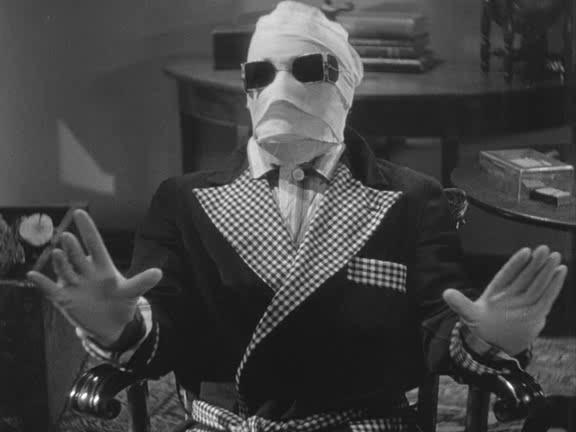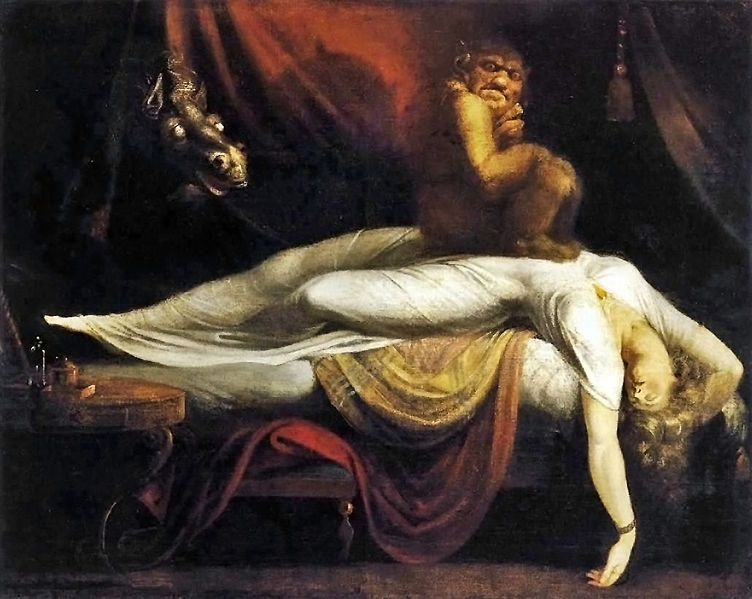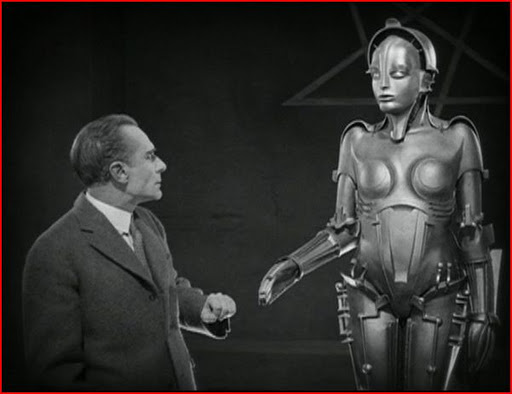Is creativity always beneficial? Does it always lead to good outcomes? The study was called the dark side of creativity: original thinkers can be more dishonest. No, it was not written by Edgar Allan Poe, but it would make a good premise. Better yet, perhaps there is an evil genius Dr. James Moriarity working in your company, a sleeper cell waiting for the incantation of “be creative ….
Simon Houpt: Uh oh. We don’t want to make ad agency bosses paranoid, but don’t be surprised if they start looking at employees in their creative departments with a little suspicion: A new study out of Harvard Business School suggests there might be a connection between creativity and dishonesty. The paper, which is based in part on research conducted at an unnamed ad agency, also found that merely inducing people to think creatively tends to produce unethical behaviour. The authors suggest that might have wider implications, especially for corporations bent on unleashing their employees’ creativity. Which is a good point: Some of the most creative people we’ve ever met at ad agencies have been in the accounting department. Read More:http://www.theglobeandmail.com/report-on-business/industry-news/marketing/persuasion/unleash-creativity-at-your-peril/article2265065/
One of the implications here is that it may be better to contract out creative work. The other is that assertions linking intelligence to creativity and then to dishonesty are fraught with complexities perhaps beyond the intelligence of the study authors to realize. How intelligent? Perhaps intelligence up to a given level results in, or can result in inethical behavior, but what is the cut-off limit? Would a Lloyd Blankfein qualify for example? The study says, “there is a robust relationship between creativity and dishonesty.” But then, is the corporate context within which the study subjects involved in an honest one? And, at a fundamental level, what is morality? In some circumstances indifference and an absence of empathy can be considered moral and ethical behavior.Or, can original thinkers be more dishonest and honest simultaneously?

---Overall, the researchers learned, the higher the creativity required for the job, the higher the level of self-reported dishonesty. Then, through a series of experimental studies, the researchers tested--and largely proved--the theory that creative people are more likely to exhibit unethical behavior when faced with ethical dilemmas.--- Read More:http://hbswk.hbs.edu/item/6883.html
…We propose that a creative personality and creativity primes promote individuals’ motivation to think outside the box and that this increased motivation leads to unethical behavior. In four studies, we show that participants with creative personalities who scored high on a test measuring divergent thinking tended to cheat more (Study 1); that dispositional creativity is a better predictor of unethical behavior than intelligence (Study 2); and that participants who were primed to think creatively were more likely to behave dishonestly because of their creativity motivation (Study 3) and greater ability to justify their dishonest behavior (Study 4). Finally, a field study constructively replicates these effects and demonstrates that individuals who work in more creative positions are also more morally flexible (Study 5). The results provide evidence for an association between creativity and dishonesty, thus highlighting a dark side of creativity.Read More:http://www.hbs.edu/research/pdf/11-064.pdf…

---Next, participants completed a series of computerized tasks, including the ambiguous dots-in-the-square task from the first study. The results showed that those in the creative mindset group were much more likely to give dishonest answers for monetary gain than those in the control group. "These were simple studies, but they were powerful in showing that our ability to justify things is significantly greater if we are in a creative mindset or when we are creative people," Gino says. --- Read More:http://hbswk.hbs.edu/item/6883.html
Another point is that do not hire people based on creativity, or so-called out of the box thinking. That being a call of last resort. In fact they may be hired based on at least some mild psychopathic tendencies that can be mutated into abstract forms of ambition and achievement within a context of the employee under the duress of an extreme form of submission. Creativity in a many ways, is a sublimation of suffering that can give access to the sacred which in general provides no assurance or protection against seductions or entreaties from so called evil geniuses; or as Freud said, even the death drive. Creativity has always been marginalized by attaching it madness and the diabolical, but it is not apparent that unlike the Marquis de Sade, one can easily elevate evil creativity into an unconditional imperative. In Arendt’s Banality of Evil she had expected an evil genius in Eichmann not a thoughtless, idiotic mental case who was clinically “normal.”
…We propose that high levels of divergent thinking and cognitive flexibility are likely to be associated with dishonest behavior when individuals are motivated to think creatively, either because of their own personalities or because of cues in the surrounding environment. Divergent thinking is likely to help individuals develop original ways to bypass moral rules. Similarly, cognitive flexibility is likely to help them reinterpret available information in a self-serving way (e.g., when justifying their immoral actions or choices). Thus, both a creative personality and creative thinking may lead individuals to relax their ethical standards or moral values, especially when self interest is activated. ( ibid. )

---Interestingly, all of the study participants wanted to maintain a positive view of themselves: In anonymous surveys, nobody admitted being a cheater, and all considered cheating to be wrong. But when faced with ethical dilemmas where they weighed self-interest against the desire to maintain their high self-image, the creative participants were better able to rationalize their dishonest behavior, so they could still see themselves as honest human beings.--- Read More:http://www.boston.com/Boston/dailydose/2011/11/creative-people-more-dishonest-harvard-study-finds/klVcc73tanfWES5BpmG3PJ/index.html?s_campaign=8315 image:http://mondo70.blogspot.com/2010_09_01_archive.html
ADDENDUM:
Zizek:Reflexivisation has transformed the structure of social dominance. Take the public image of Bill Gates. Gates is not a patriarchal father-master, nor even a corporate Big Brother running a rigid bureaucratic empire, surrounded on an inaccessible top floor by a host of secretaries and assistants. He is instead a kind of Small Brother, his very ordinariness an indication of a monstrousness so uncanny that it can no longer assume its usual public form. In photos and drawings he looks like anyone else, but his devious smile points to an underlying evil that is beyond representation. It is also a crucial aspect of Gates as icon that he is seen as the hacker who made it (the term ‘hacker’ has, of course, subversive/marginal/anti-establishment connotations; it suggests someone who sets out to disturb the smooth functioning of large bureaucratic corporations). At the level of fantasy, Gates is a small-time, subversive hooligan who has taken over and dressed himself up as the respectable chairman. In Bill Gates, Small Brother, the average ugly guy coincides with and contains the figure of evil genius who aims for total control
our lives. In early James Bond movies, the evil genius was an eccentric figure, dressed extravagantly, or alternatively, in the grey uniform of the Maoist commissar. In the case of Gates, this ridiculous charade is no longer needed – the evil genius turns out to be the boy next door. Read More:http://www.lrb.co.uk/v21/n06/slavoj-zizek/you-may
——————————–
Foucault argues that Descartes’ fiction of the evil genius ‘deceives more effectively than a swollen brain’ . Like dreams, the evil genius is a simulacrum of madness, which has enough substance for the meditating mind to dismiss ‘the risk of being mad‘ . The literary critic Shoshana Felman writes that Foucault’s account of the evil genius signifies the crucial difference between the philosopher and the mad person. The philosopher orientates ‘himself in fiction…in order to abandon it’ while the mad person ‘is engulfed by his own fiction’ . Felman’s contrast explains Foucault’s critique of Derrida. Descartes’ doubt teeters on the verge of being overwhelmed by his fictional dialogue of madness. No matter how absurd or irrelevant the Descartes’ non-philosopher thinks of madness, the doubt of it being able to take control of his thoughts remains. As Felman observes Foucault, unlike Derrida, argues that madness challenges philosophy . Also, through Foucault’s account of dreaming, it can be surmised that madness even enlightens philosophy through its discursive nature. Read More:http://hobbinol.wordpress.com/2011/09/22/the-michel-foucault-and-jacques-derrida-debate-on-cartesian-doubt/







 COMMENTS
COMMENTS



